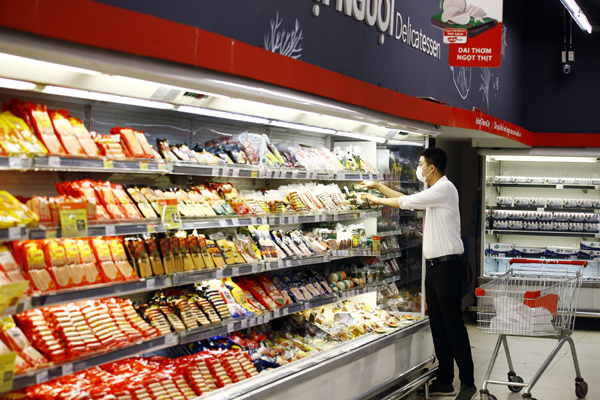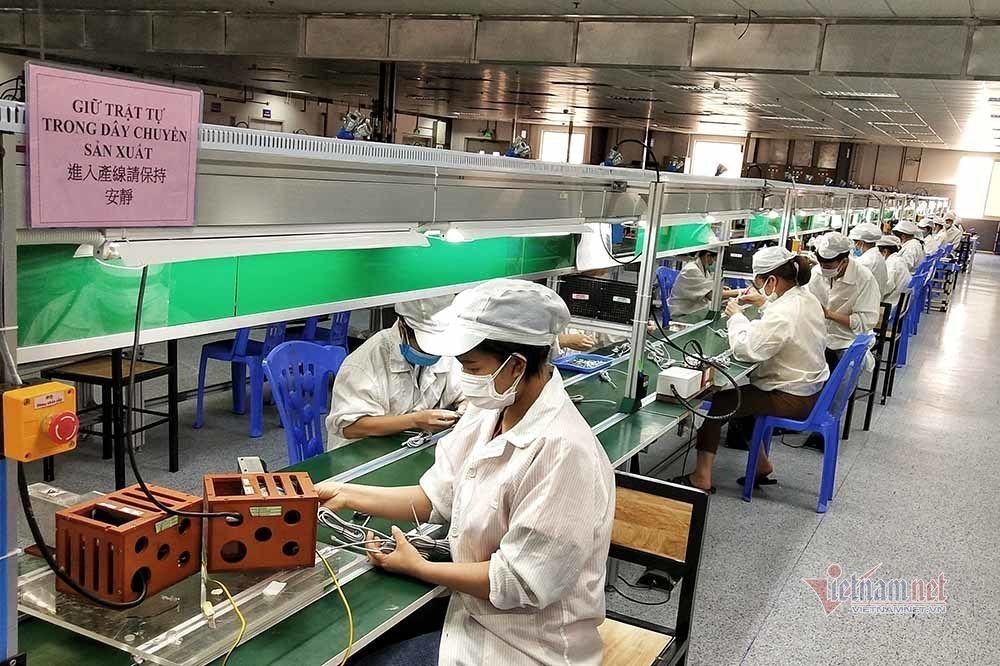 |
Currently, the supply of essential goods in Ho Chi Minh City, Hanoi and some southern provinces is very tense due to the impact of the Covid-19 epidemic. As most of the markets are closed, people often go to supermarkets and convenience stores to purchase food and personal belongings.
Supermarkets and convenience stores are shouldering an additional 70% of the market's shopping demand. At the same time, manufacturing enterprises are spending trillions of VND on epidemic prevention, applying the "3 on-the-site" model, working day and night to meet consumer demand.
With job-related characteristics such as frequent travel and contact with many people, retail employees and workers in industrial zones and clusters face a high risk of infection.
Recently, Thanh Nga - a meat supplier to many hospitals, hotels and supermarkets in Hanoi - had to suspend operations when its employees were diagnosed with Covid-19. Many "3-on-the-spot" enterprises in Dong Nai and Binh Duong provinces have become new outbreak clusters after many workers tested positive for Covid-19.
Delivery and production activities had to stop immediately, and all employees and partners were under quarantine on the spot. They not only face a high risk of getting infected, but also worry that they will be a direct source of infection for their family and society.
Chu Tien Dung, chairman of the Ho Chi Minh City Business Association, said both businesses and workers have to exert great efforts to maintain production under the “three on-the-site” model or “one road - two destinations”. But when only one worker is positive with covid, production must be stopped immediately.
To maintain the supply chain of essential goods, the Ministry of Industry and Trade has asked the People's Committees of provinces and cities to direct the local health sector and related agencies to prioritize vaccinations against Covid-19 for workers in enterprises in the supply chain of essential commodities such as food, foodstuffs, petroleum, pharmaceuticals, and anti-epidemic goods.
The Ministry of Industry and Trade also asked the People's Committees of provinces and cities to receive registrations for vaccinations from corporations, companies, and cooperatives that participate in the supply of essential goods and services.
Vinh Phu

Fearing supply chain disruption, businesses want priority in vaccination access
Eleven associations have asked to give priority to workers at enterprises to maintain production.